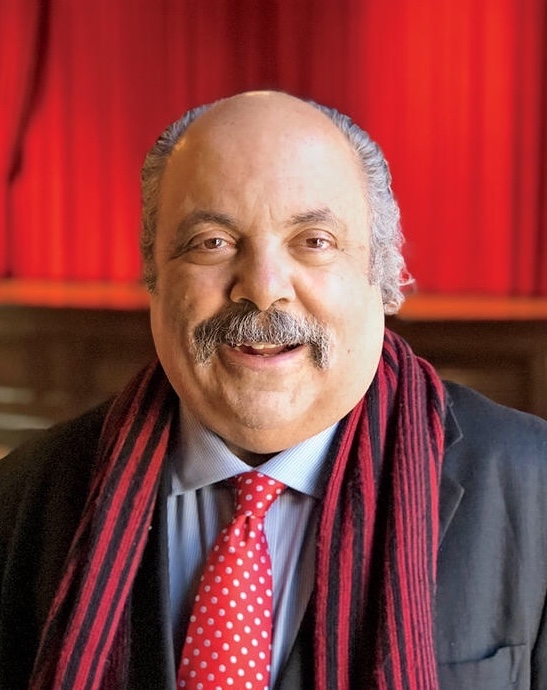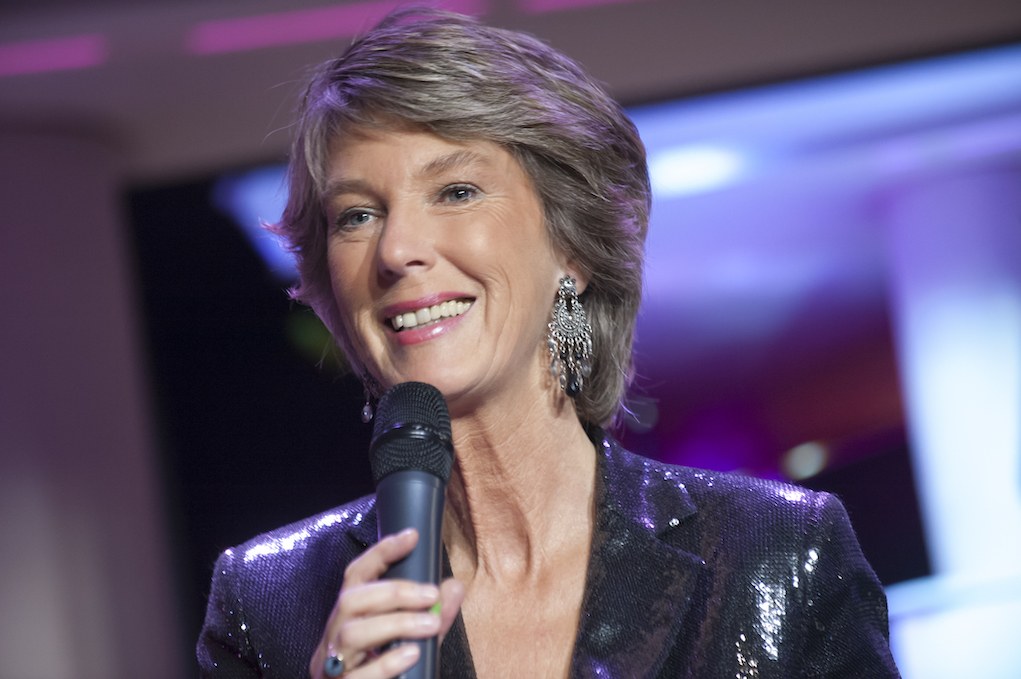I grew up going to the Opera. It is a big part of Viennese culture and a big part of my family, because my grandfather, Eberhard Waechter, used to be an opera singer and director of the Vienna State Opera. As the 150th anniversary of the Vienna State Opera was approaching I started thinking about the future of Opera and how it has changed over the years. The questions I asked myself were, “How do you bring opera to young people? What does opera mean nowadays? Does opera need to be modernized in order to bring in and interest young people or is it the opposite? Do young people need to learn to love the old art form as it is? What is the future of Opera? Is it relevant? How do we learn to love opera? Is it an art form for everyone?”

I interviewed two opera experts regarding the subject: America’s expert Fred Plotkin and Barbara Rett, Vienna’s foremost Art Journalist and TV Presenter.
I talked to Fred Plotkin on the phone one evening while he was in a hotel in Orlando. He had just come from London. He said he basically spends his life on planes. In June he will be in Vienna. First he asked me if I am related to Eberhard Waechter and then said “See, and you would think I only know Italian opera”. Fred Plotkin is known mainly for his expertise in Italian Opera.

What is your opinion on the modernization of Opera? Do we need to make it relevant? Is it Opera’s responsibility to appeal to younger people or do young people need to strive to understand and love Opera the way it is?
Fred Plotkin: No, it is the opposite. We do not need to modernize opera. No one, for example, is trying to modernize the paintings in the Kunsthistorische Museum in Vienna. People love the paintings for the beauty they already have. They are what they are. The most important part is that opera is done well, with wonderful singers who get enough rehearsal time, an excellent conductor, and stage directors and designers who do not feel like they need to improve the work of the composer and librettists. Often people strive to make opera relevant to modern times, but we actually need to respect and understand the original work. We need to try to understand what makes it great based on what it is. For example, if we take a Velazquez painting, it is not up to us to make the painting more modern or relevant, it is for us to go up to the painting and understand it. The challenge to learn and love opera is that it takes work and engagement. We are emotionally developing all the time. If we do not like one opera it does not mean we do not like the art form of opera. The first time I saw “Madame Butterfly” I was 22 years old and it did not affect me at all. Now I think it is a masterpiece. At 22 I just did not have anything in my life that connected me to the feelings of “Madame Butterfly”. There are some operas where you are connected to the music immediately, like the “Magic Flute”, but the story isn’t very good. Opera lives on an emotional plane rather than a literal plane, which is what makes it special, because very little allows us to be emotional. Opera allows us to be emotional, more human. How great is that? And emotional relevance is much more powerful. In Opera the voices are primary.
You said that we have to work a little to watch opera. What is the ideal way to watch opera?
Fred Plotkin: The way to go to an opera is to read the synopsis before, listen to the music before. So that when you are at the opera you do not need to read the subtitles, but only listen to the music. In opera music tells the story more than the words.Young people who are educated are trained to automatically be analytical, which keeps them from actually paying attention to the opera. I try not to be analytical when I watch opera, but try to let it just wash over me. If you analyse it in real time you are not really experiencing it.
You mentioned paintings earlier. The difference between opera and paintings is that the painting is already finished. We cannot change it. But opera is a living art form. So there is more pressure to make it relevant.
Fred Plotkin: Opera is emotionally relevant. The stories do not need to be modernized. For example, Angelica in Puccini’s “Suor Angelica” tends the herbs in the garden and knows which one is poisonous. I’ve seen it set in hospitals where she takes drugs. That’s not what it’s about. She is in the convent because she is religious. And when you commit suicide as a Catholic you cannot get into heaven. That’s the real issue. With the modernization we lose the context. There are occasional adaptions that work well. I have seen over 200 different versions of “Aida”, so I don’t mind seeing an original take on it. But if a young person sees “Rigoletto” for the first time in Munich and it is set in Planet of the Apes, which was done by German Film Director Doris Dörrie at the Bavarian State Opera, they will be confused. However, there are a lot of new operas that are successful as well. Jake Heggie wrote an opera 15 years ago called “Dead Man Walking”, which was very successful. And in May and June the annual opera festival takes place in New York City.
Fred also talks about new operas coming out in his podcast WQXR and frequently interviews opera singers in his “Adventures in Italian Opera” Series at Casa Italiana Zerilli-Marimò.
Barbara Rett is Vienna’s foremost Art Journalist and TV Presenter and graciously agreed to take out time out of her busy schedule of preparations for the 150th anniversary of the Vienna State Opera to talk to me.

The 50th Anniversary of the Vienna State Opera was on May 26th. How has opera changed over the years?
Barbara Rett: In art, it doesn’t matter whether something is old or new – there is only “good” or “not good”. A good theater piece that is 400 years old is just as touching as a great contemporary piece. Opera is a place of continuity, preservation and passing on of works of past centuries, as well as bringing them alive through concrete, contemporary performances.
What is your opinion of the modernization of Opera? Is it important to try to make opera fit into modern times or is it our responsibility to try to understand opera the way it is?
Barbara Rett: There are 4 kinds of Productions:
- Good, modern productions that draw in the audience and are relevant to modern times. Those productions should definitely be the goal, however there are unfortunately very few opera directors who manage to do so convincingly. Some of the few are Claus Guth, Christoph Loy, Damiano Michieletto, Robert Carsen and Alexandra Liedtke.
- Timeless, but relevant productions. Productions like the 50 year old productions of Otto Schenk in Vienna, which constitute his accurate and psychological direction as well as his loving Choir-direction (which only few are able to do nowadays). We can try to put up a new Viennese “Rosenkavalier”, bu the question is if it will be better.
- Directors who simply put up a production where I feel like they just want to get it done and are not interested whether the audience will feel something, will be drawn to it, or feel touched in some way. In such a case, opera really does become like a museum, even though the premiere may be in 2019.
- Productions that want to desperately be different/provoke, but do not actually bring the necessary new and original perspective to it – shallow productions. They bore me as much as the previously mentioned Opera-Museum.
Is Opera an Art form that is for everyone or does it remain an elite Art form?
The opera itself touches everyone, the music, the stories – they are about the basic themes of human nature. Love, hate, jealousy, power, powerlessness, loss – it doesn’t need much explanation, education, or expertise. The opera is elite because it is costly and involves a lot of work – you need 100 orchestra musicians, singers, choir singers, extras, etc. The money spent needs to be recouped through the tickets sold.
What can motivate young people to be interested in Opera?
A lot of young people come to every production of the Vienna State Opera, mainly tourists. You have to have cheap options for young people. At the Vienna Opera there are cheap standing seats for young people. And of course, the production itself has to be touching. It’s always interesting to see whether the standing seats are half empty after the intermission. If they are just as full after intermission as at the beginning, the opera works.
In New York there are a lot of opera festivals with new operas, are there any new operas in Vienna as well?
There are a few initiatives that I value a lot like the “Neue Oper Wien” (New Opera Vienna) of Walter Kobéra, who do new or forgotten productions, as for example the “Teatro Barocco” of Bernd Bienert. Especially in the summer, there are a lot of places in Austria that put on operas in an interesting and loving manner, like the “Oper Klosterneuburg” of Michael Garschall and the “Oper im Steinbruch” in St. Margarathen.
What do you think Eberhard Waechter would say to the development of opera nowadays?
He would say: there are so many fantastic new singers – what a delight! To become an opera singer has become a very attractive profession again because of Anna Netrebko and Jonas Kaufmann. There are a lot of new, great singers. Opera lives through the singers, so opera will live forever.












